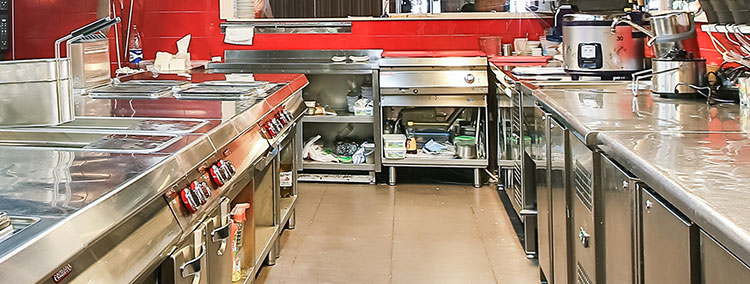For the dishwasher to last for long, you need to take good care of it. Dishwasher repair professionals observe that it’s the everyday tasks that make all the difference. Want to keep your appliance in tip-top shape? Here are tips on how to go about it:
Don’t overpack the appliance
A full dishwasher is indeed more energy-efficient, but when you overpack it, you end up running into problems. An overcrowded appliance doesn’t run efficiently. It doesn’t clean the dishes as well as it should. When you pack it too tightly, some of the dishes don’t get clean, and you have to re-wash them, which is double the work.
If you have a lot of dishes that need to be cleaned, run two loads so that everything gets clean. You can also hand wash a few dishes that aren’t too dirty.
Watch where you place the dishes
Where you place the utensils greatly determines the results you get. For optimum results, place the delicates on the top rack and the more durable dishes on the bottom shelf. The cooking utensils are best placed on the top rack—not in the cutlery bin.
Stagger the forks and spoons in the cutlery bin with some handles facing up and others down. This will allow water to get in between them so that they can be as clean as possible.
When placing the dishes in the dishwasher, find out the direction of the water sprayer. Place the soiled sides on the side of the water while taking care that you don’t block the sprayer with any large items.
Avoid placing sterling silver and silver-plated utensils in the dishwasher. Hand wash the dishes instead. If you have to wash them using the dishwasher, don’t put them in the same load as stainless steel. This is to avoid any reaction that might come about due to both metals.
Keep the dirtiest dishes together
When the dishes aren’t too dirty, you can get away with shorter, lighter cycles. This saves you energy and at the same time, reduces your energy bill. When you have dirty dishes, and you run a short cycle, the dishes will come out still dirty.
For you to have an easy time cleaning them, group the dirtiest dishes then run a longer cycle. You can even hand wash the dirtiest dishes.
Scrape excess foods—don’t rinse
When the dishes are too dirty, many homeowners rush to pre-rinse the dishes with the hope that the dishwasher will have an easy time. Don’t do this. Pre-rinsing not only leads to water wastage, but it also worsens the performance of the detergents.
There is no harm in removing the excess food before you put them in the dishwasher, but you shouldn’t rinse the dishes—scrape them instead.
Clean the door seals
Regular use of the dishwasher increases the chances of gunk building up around the appliance door and even around the soap drawer. The build-up is not only ugly to look at, but it also affects the strength of the seal and at the same time provides a breeding ground for mold.
To avoid this, clean the dishwasher seals with a damp piece of cloth or mild detergent.
Watch the soap
For you to get cleaner dishes, you might be tempted to add a lot of soap to the dishwasher. This is wrong. A lot of soap clogs up the dishwasher preventing it from running as efficiently as it should.
Different dishwashers have different soap requirements. If you aren’t sure of the right amount of soap you should use, check the recommendations of the manufacturer.
Soften the water
If you live in areas that have hard water, consider softening it before you allow it into the dishwasher. Hard water leads to breaks and marks on the dishes; therefore, you should strive to soften it before it reaches the appliance.
If you can’t control the natural hardness of water, use a teaspoon of vinegar in the rinse cycle, and this will go a long way at keeping the unit running efficiently.
Undertake regular dishwasher inspections
Even when you are taking optimum care of the dishwasher, it’s common for problems to come about. To protect yourself, hire an appliance repair Northern VA professional at least once a year to inspect the unit and fix any issues that might be there.
